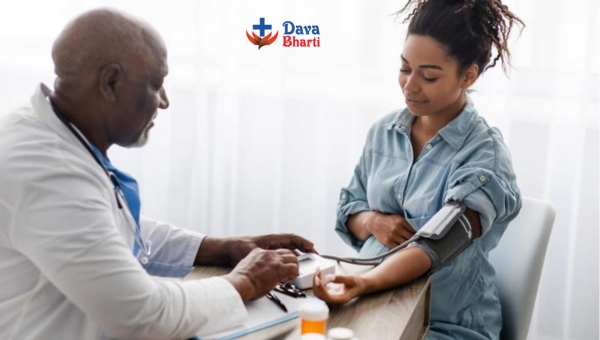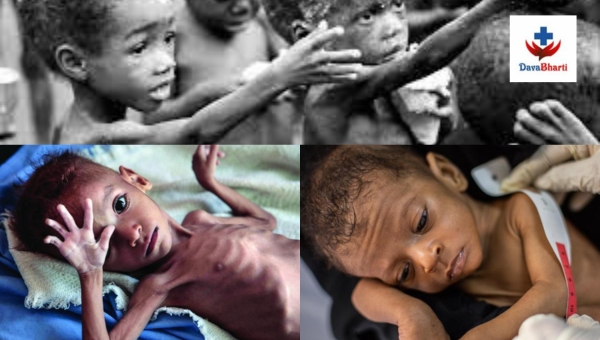Malnutrition: Malnutrition Prevention
Nov 21, 2023
Malnutrition:
A person who is Malnourished receives either too little or too much of a particular nutrient. Serious health problems like Diabetes, Heart disease, Vision problems, and development retardation can result from it. Worldwide, billions of people suffer from Malnutrition.
The number of stunted (too short for age) and wasted (too thin for height) children under five worldwide in 2020 was expected to be 149 million, and the number of overweight or obese children to be 38.9 million.
Malnutrition can take several forms, such as:
Undernutrition: Inadequate consumption of calories, protein, or micronutrients causes this kind of Malnutrition. It causes underweight, stunting of height for age, and low weight for height (wasting). A lack of vitamins and minerals, particularly iron, zinc, vitamin A, and iodine, is common among undernourished individuals.
Malnutrition can also result from overconsumption of specific nutrients, such as fat, protein, or calories. Being overweight or obese is the common outcome of this. Overnutrition can also result in shortages of some micronutrients.
Inadvertent weight loss It results from a deficiency of essential nutrients, which reduces muscular mass and body weight.
Weariness and Weakness: Due to low energy intake, malnourished people frequently experience weariness and weakness. This may affect day-to-day activities and result in a lower standard of living.
Children's decreased growth and developmental disabilities might result from Malnutrition. Permanent physical and cognitive deficits might occur from the deprivation of vital nutrients throughout critical growth phases.
Edema: Excessive hunger can cause fluid to build up in bodily tissues, which results in edema, or swelling. The extremities frequently exhibit this.
Immune System Weakness: People with little nourishment have weakened immune systems, which leaves them more vulnerable to infections and illnesses. Recurrent diseases have the potential to exacerbate the cycle of famine.
Skin and Hair Issues: Malnourished individuals may exhibit dry and flaky skin, as well as hair loss. These external signs reflect the body's struggle to maintain essential functions with limited nutritional resources.
Why People Get Malnourished:
Numerous factors contribute to malnutrition, many of which interact in complex ways. It is necessary to comprehend these reasons in order to create successful preventive measures. Typical reasons include:
Poor Dietary Intake: One of the main causes of malnutrition is insufficient intake of vital nutrients, such as proteins, vitamins, and minerals. Poverty, food insecurity, and a lack of knowledge about balanced nutrition can all contribute to this.
Digestive Disorders: A number of illnesses that impact the digestive tract, including inflammatory bowel disorders, celiac disease, and chronic diarrhea, can make it difficult for the body to absorb nutrients, which can result in Malnutrition.
Food Insecurity and Poverty: A major cause of Malnutrition, particularly among low-income groups, is restricted access to wholesome food as a result of financial hardships and shortages.
Absence of Nursing: Infant Malnutrition can result from inadequate nursing practices, such as early breastfeeding cessation and a lack of exclusive breastfeeding.
Natural catastrophes like floods and droughts can cause disruptions in the production and delivery of food, which in turn can exacerbate hunger among impacted communities.
Malnutrition Prevention:
Targeting the root causes of Malnutrition necessitates a multifaceted strategy. Crucial safeguards consist of the following, as mentioned below:
Enhancing Access to Nutritious Food: Preventing Malnutrition requires addressing poverty and advancing food security. This entails making certain that people and communities consistently have access to a wide range of wholesome foods.
Improving Healthcare Services: It's critical that people have access to healthcare, particularly in underserved and rural areas. Frequent check-ups can help detect malnutrition early on and treat it to prevent further consequences.
Breastfeeding Promotion: Breastfeeding practices, such as exclusive breastfeeding for the first six months of life, should be encouraged and supported as they improve an infant's general health and wellbeing.
Promoting Balanced Diets: Encouraging the consumption of a variety of foods that are high in nutrients is essential to promoting balanced diets. Education initiatives and public awareness campaigns can help people make healthier food choices.
Water and Sanitation: Ensuring that people have access to safe and clean drinking water as well as better sanitation facilities helps reduce waterborne illnesses that can exacerbate hunger.
Empowerment of the Community: Including communities in the development and execution of nutrition initiatives promotes sustainability and a sense of ownership.Empowered communities are more likely to adopt and maintain healthy behaviors.
Finally, it should be noted that Malnutrition is a serious health issue with many facets and is difficult to treat. To improve the nutritional condition and general well-being of populations worldwide, it is imperative to identify its symptoms, comprehend its underlying causes, and put comprehensive preventive measures into place. The creation of lasting and successful initiatives to combat Malnutrition necessitates cooperation between governments, medical experts, non-governmental organizations, and communities.
Recent Post

Natural Remedies for Mental Wellness Top Ayurvedic Solutions

Men’s Health Awareness: Natural Approaches to Boost Energy, Vitality, Prostate Health, and Mental Wellness

Overweight and Obesity: Causes, Impact, and Solutions

Detoxing Your Body: A Natural Path to Health and Wellness

Meditation: A Simple, Fast Way to Reduce Stress

Cervical Pain: Causes, Symptoms, and Treatment

Embrace Telehealth Services for Common Summer Ailments: Dava Bharti Online Pharmacy

Title: Understanding Blood Pressure: Causes, Effects, and Management

"Summer Skincare Secrets: How to Maintain Healthy Skin in Summer Season"

Benefits of Drinking Hot Water






